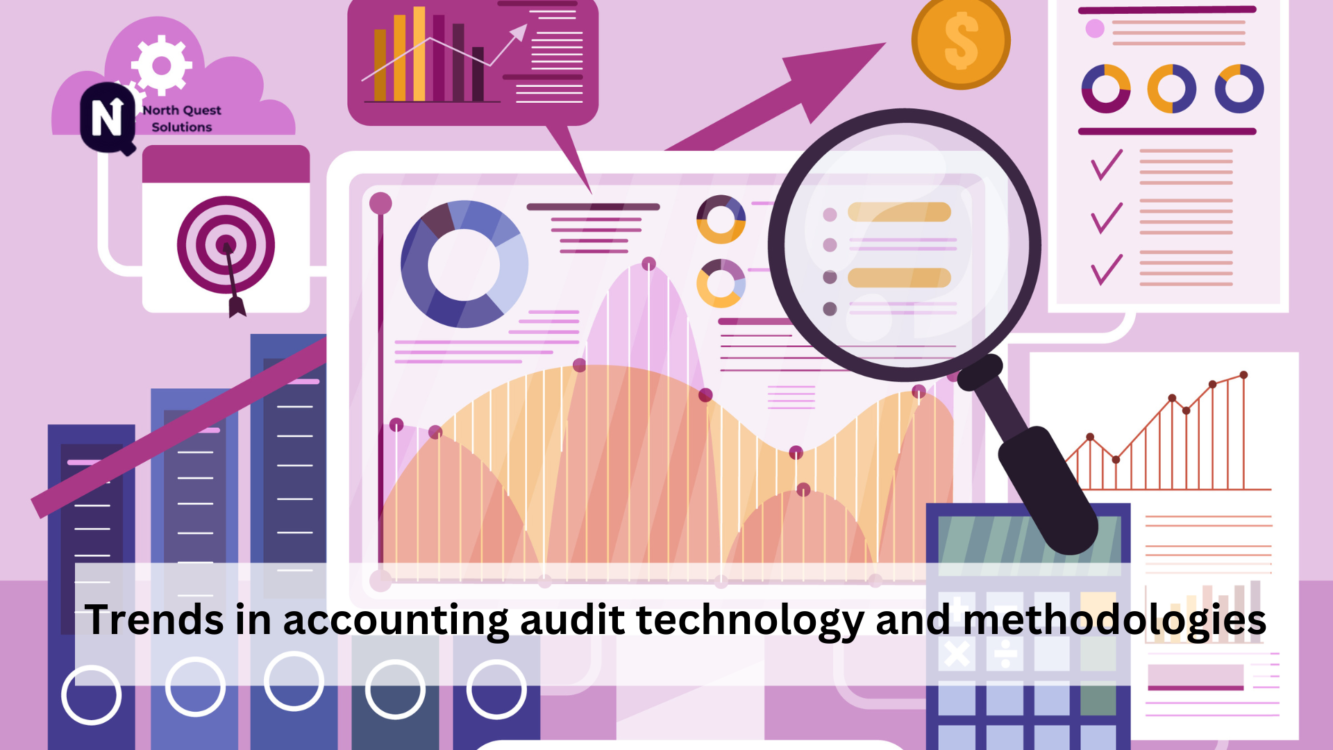
In a state-of-the-art unexpectedly evolving commercial enterprise panorama, the sector of accounting audit era and methodologies is experiencing groundbreaking modifications. With the advent of advanced technologies and progressive methodologies, auditors are empowered to beautify the performance, accuracy, and reliability of their practices. This article delves into the emerging tendencies shaping the destiny of the accounting audit era and methodologies, presenting insights into the dynamic nature of the industry.
Navigating the Digital Era: Leveraging Technology in Auditing
In the digital age, technology serves as a cornerstone for revolutionizing accounting audit practices. From automatic records analysis to synthetic intelligence (AI)–push auditing tools, technological improvements are streamlining processes and augmenting auditors’ abilities. Cloud-based total audit structures, equipped with sturdy security functions, facilitate seamless collaboration and information control, transcending geographical boundaries. Moreover, blockchain generation is gaining traction for its ability to decorate transparency and integrity in economic audits, ensuring the immutability of transaction facts.
Harnessing Data Analytics for Enhanced Insights
Data analytics emerges as a pivotal trend in revolutionizing accounting audit methodologies. By harnessing the electricity of large records and predictive analytics, auditors can glean treasured insights from widespread datasets, enabling proactive risk identity and mitigation techniques. Advanced analytics gear empowers auditors to detect anomalies, traits, and patterns with unheard-of precision, facilitating greater informed choice-making strategies. Moreover, gadget-getting-to-know algorithms enable non-stop tracking of monetary transactions, bolstering audit efficiency and efficacy.
Embracing Automation for Operational Efficiency
Automation emerges as a driving pressure at the back of the evolution of accounting audit methodologies, permitting auditors to streamline repetitive obligations and focus on high-value activities. Robotic process automation (RPA) technologies automate guide processes, consisting of data access and reconciliation, decreasing the threat of human blunders and improving audit accuracy. Additionally, cognitive automation tools leverage natural language processing (NLP) abilities to extract insights from unstructured information, expediting audit tactics and improving compliance with regulatory requirements.
Augmented Reality: Transforming Audit Fieldwork
The integration of augmented truth (AR) technology is reshaping conventional audit fieldwork, supplying auditors with immersive experiences and real-time insights. AR-enabled audit applications facilitate on-website inspections and asset verifications, enhancing audit comprehensiveness and accuracy. Auditors can overlay virtual records onto physical environments, allowing them to visualize complex audit records in a spatial context. Furthermore, AR-pushed far-off help functionalities empower auditors to collaborate seamlessly and troubleshoot troubles in actual time, transcending geographical constraints.
Enhancing Cybersecurity Resilience in Auditing
With the proliferation of cyber threats, cybersecurity resilience emerges as an important vital for accounting audit generation and methodologies. Auditors are increasingly prioritizing cybersecurity measures to guard touchy financial information and mitigate risks of information breaches. Implementing robust cybersecurity protocols, inclusive of encryption algorithms and multi-thing authentication mechanisms, fortifies audit infrastructure against malicious cyber intrusions. Moreover, continuous tracking and chance intelligence analytics enable auditors to preemptively perceive and mitigate rising cyber threats, ensuring the integrity and confidentiality of audit statistics.
Navigating Regulatory Compliance Challenges
In a more and more stringent regulatory environment, compliance with evolving audit standards poses good-sized challenges for auditors. Keeping tempo with regulatory adjustments and making sure adherence to hooked-up auditing frameworks necessitates continuous vigilance and adaptableness. Audit generation solutions prepared with regulatory compliance modules provide auditors with actual-time updates on regulatory necessities and facilitate seamless integration of compliance measures into audit approaches. Furthermore, leveraging regulatory compliance analytics enables auditors to assess the effectiveness of internal controls and identify areas for improvement, ensuring compliance with regulatory mandates.
Empowering Auditors Through Continuous Learning
As accounting audit technology and methodologies evolve, continuous getting to know emerges as a cornerstone for auditors’ professional improvement and flexibility. Investing in ongoing training and upskilling initiatives equips auditors with the knowledge and skills to leverage emerging technologies efficiently. Professional certification applications, workshops, and online publications permit auditors to stay abreast of enterprise traits, quality practices, and regulatory traits. By fostering a lifestyle of non-stop gaining knowledge of and innovation, businesses empower auditors to navigate the complexities of the current audit landscape with self-assurance and proficiency.
Conclusion:
As the accounting audit landscape continues to evolve, embracing emerging trends in technology and methodologies is imperative for auditors to thrive in the digital era. By leveraging advanced technologies such as data analytics, automation, and augmented reality, auditors can enhance audit quality, efficiency, and effectiveness. Moreover, prioritizing cybersecurity resilience and regulatory compliance ensures the integrity and credibility of audit processes. With a commitment to continuous learning and innovation, auditors can navigate the complexities of the modern audit landscape with confidence and proficiency, unlocking new opportunities for growth and excellence.
More information:- North Quest Solutions
